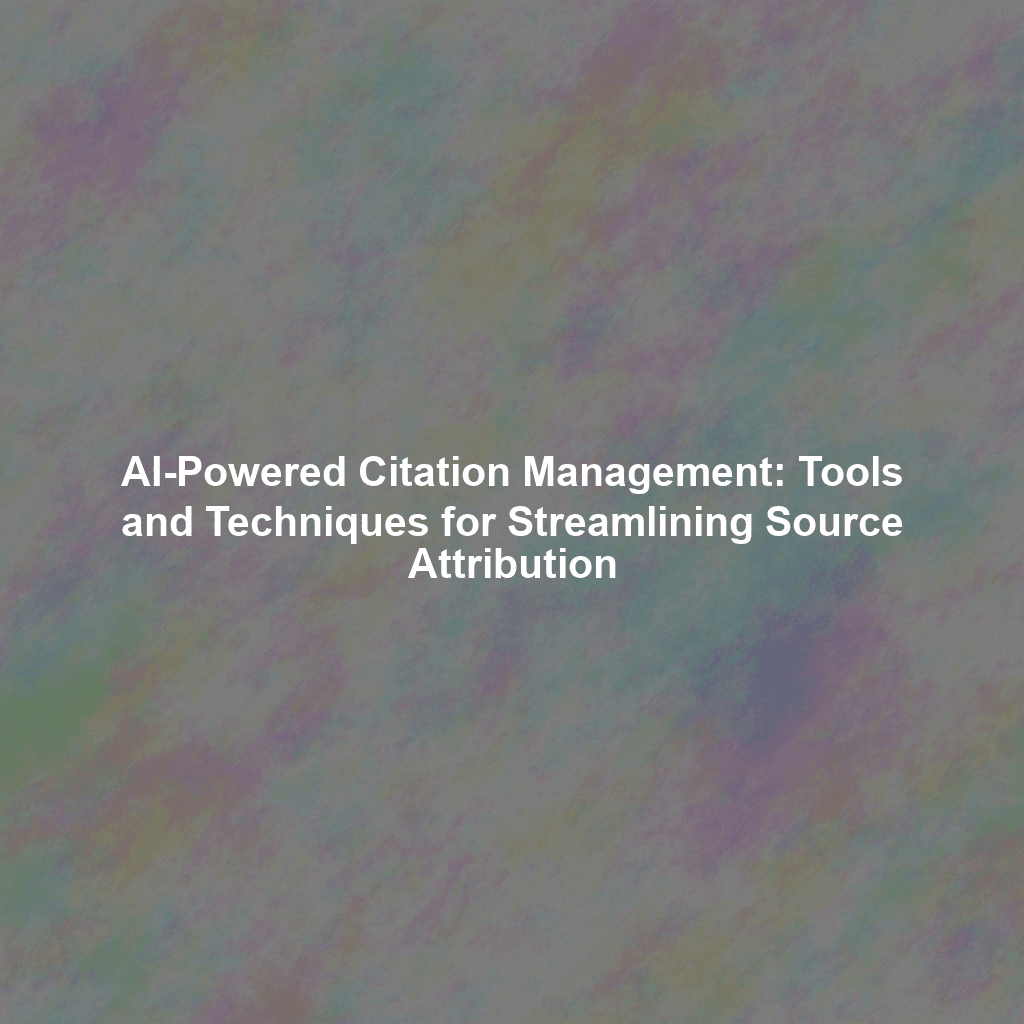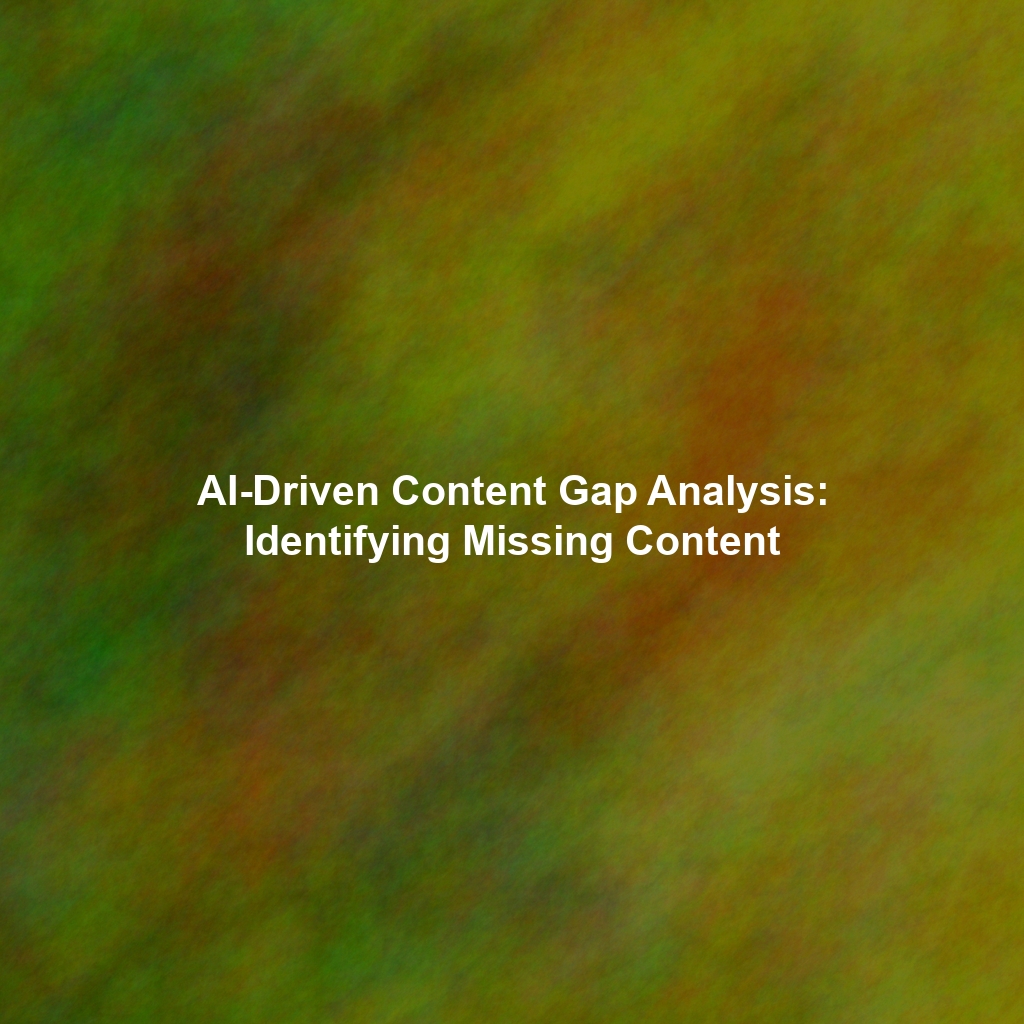As AI writing tools become increasingly sophisticated, the need for responsible and transparent content creation practices is paramount. One crucial aspect of this is proper source attribution. Failure to accurately cite sources can lead to plagiarism, reputational damage, and legal issues. This article explores the emerging landscape of AI-powered citation management tools designed to streamline source attribution in AI writing workflows, ensuring accuracy and ethical content generation.
The Importance of Source Attribution in AI Writing
AI-generated content, while often impressive, is ultimately built upon existing data and information. The AI models learn from vast datasets, and their output frequently reflects the ideas, research, and wording of those sources. Therefore, attributing sources is not just a matter of academic integrity; it’s a fundamental requirement for ethical AI content creation.
- Avoiding Plagiarism: Properly citing sources ensures that you’re not presenting someone else’s work as your own.
- Building Trust and Credibility: Transparently attributing sources demonstrates that your content is well-researched and based on reliable information.
- Supporting Claims and Arguments: Citations provide evidence to back up your statements and strengthen your arguments.
- Giving Credit Where It’s Due: Recognizing the original authors and creators of the information used in your content.
AI-Powered Citation Management Tools: An Overview
Several AI-powered tools are emerging to address the challenges of source management and citation in AI writing. These tools leverage natural language processing (NLP) and machine learning (ML) to automatically identify potential sources, generate citations, and ensure accuracy. Here’s a look at some prominent examples:
Key Features to Consider
When evaluating AI-powered citation management tools, consider these key features:
- Automatic Source Identification: The ability to automatically identify potential sources within the AI-generated text.
- Citation Generation: Support for various citation styles (e.g., MLA, APA, Chicago) and automatic generation of citations in the correct format.
- Accuracy Verification: Mechanisms to verify the accuracy of citations and identify potential errors.
- Integration with Writing Platforms: Seamless integration with popular writing platforms like Google Docs, Microsoft Word, and Markdown editors.
- Reference Management: Tools to manage and organize your research materials.
- Plagiarism Detection: Built-in plagiarism detection capabilities to ensure originality.
Comparing Different Platforms
While specific platform recommendations change rapidly with the evolving market, generally speaking, look for tools specializing in one or more of the following:
- Academic Research Support: Tools like ResearchRabbit and Elicit focus on helping researchers discover and manage academic literature. They often include advanced search capabilities and citation extraction from PDFs.
- General Writing Assistance: Grammarly, while not solely focused on citations, offers features like citation suggestions and plagiarism checking. Other grammar and writing assistants are also beginning to incorporate citation features.
- Dedicated Citation Management Software: Traditional citation management software like Zotero and Mendeley are beginning to integrate with AI writing workflows, offering features like collaborative citation and integration with AI-powered research assistants.
- AI Content Creation Platforms: Some AI content creation platforms are beginning to build in citation management capabilities directly, making it easier to cite sources within the generated text.
When comparing platforms, consider their specific strengths and weaknesses in relation to your needs. Do you primarily need help with academic research, or do you need a more general-purpose citation management tool? What is your budget? How important is integration with your existing writing workflow?
Techniques for Streamlining Source Attribution
Beyond using AI-powered tools, several techniques can streamline source attribution in AI writing workflows:
- Maintain a Detailed Research Log: Keep track of all the sources you consult during your research process, including URLs, author names, publication dates, and key quotes.
- Use a Consistent Citation Style: Choose a citation style (e.g., MLA, APA, Chicago) and stick to it throughout your content.
- Verify Citations Carefully: Double-check all citations for accuracy before publishing your content. Pay close attention to details such as author names, publication dates, and page numbers.
- Use Plagiarism Detection Software: Run your content through plagiarism detection software to identify any unintentional instances of plagiarism.
- Human Review is Essential: Always have a human reviewer check the AI-generated content for accuracy, clarity, and proper attribution. AI tools are helpful, but they are not perfect.
Integrating AI-Powered Citation Management into Your Workflow
Integrating these tools into your workflow requires a strategic approach. Here are some practical tips:
- Start with a Clear Research Question: Define your research question clearly before you begin gathering information. This will help you stay focused and avoid getting overwhelmed by the abundance of available sources.
- Use AI Tools to Identify Potential Sources: Use AI-powered tools to identify potential sources related to your research question.
- Evaluate Sources Carefully: Evaluate the credibility and relevance of each source before using it in your content.
- Use AI to Generate Citations: Use AI-powered tools to generate citations in the correct format.
- Review and Edit Citations: Review and edit the AI-generated citations to ensure accuracy.
- Maintain a Citation Library: Build a citation library to track your sources and reuse them in future projects.
Limitations and Challenges
While AI-powered citation management tools offer significant benefits, it’s important to acknowledge their limitations:
- Accuracy Issues: AI tools are not always perfect and can sometimes make errors in source identification or citation generation.
- Bias in Training Data: AI models are trained on existing data, which may contain biases that can be reflected in their output.
- Over-Reliance on Automation: It’s crucial to avoid over-reliance on automation and always exercise critical judgment when evaluating AI-generated citations.
- Cost: Some AI-powered citation management tools can be expensive.
Conclusion
AI-powered citation management tools are transforming the landscape of content creation, offering the potential to streamline source attribution and ensure accuracy in AI writing. By understanding the benefits, limitations, and best practices for using these tools, writers and content creators can leverage them to create high-quality, ethical, and trustworthy content. As AI technology continues to evolve, we can expect even more sophisticated and effective citation management solutions to emerge, further simplifying the process of responsible source attribution.
 Skip to content
Skip to content

